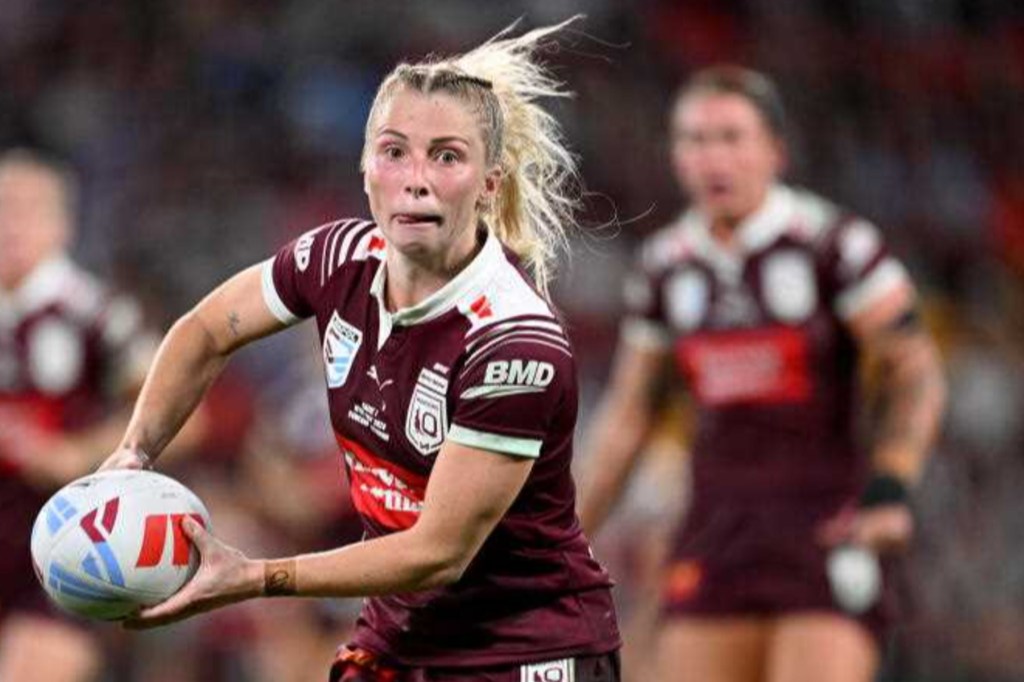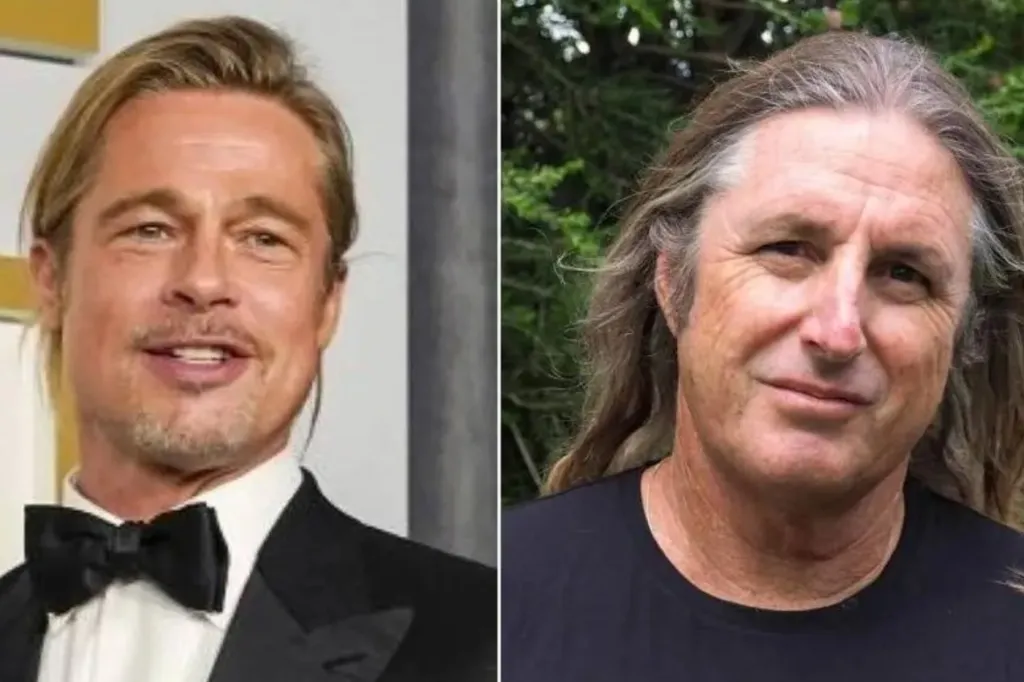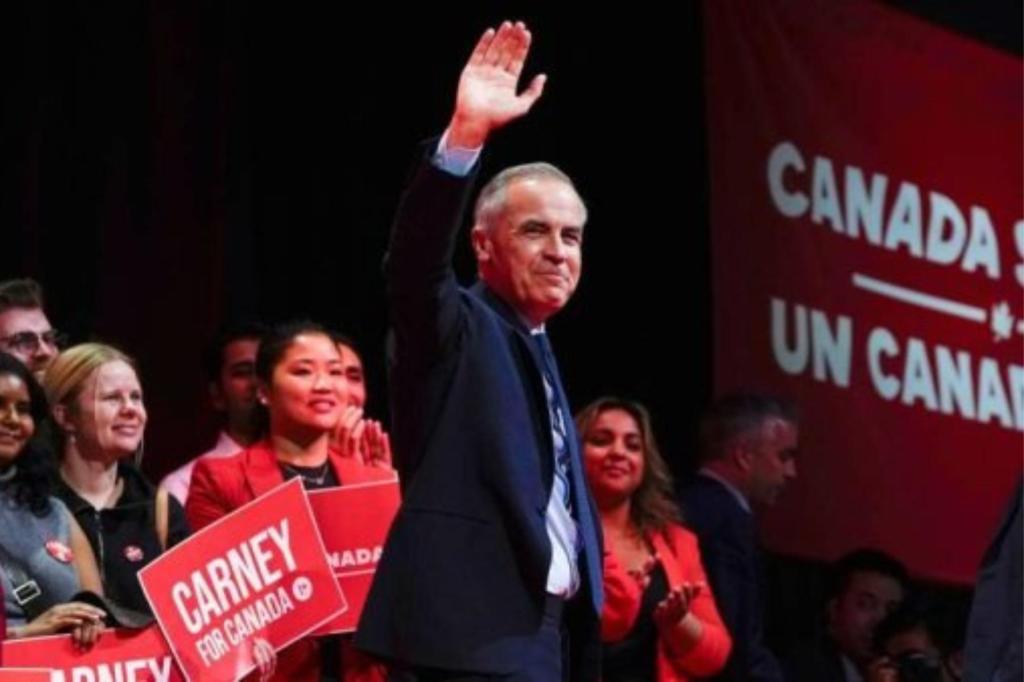What did Australia learn from the Canadian election?
Political insiders are dissecting the Canadian election ahead of Australians going to the polls this Saturday.
The Liberals have retained power but fell short of the majority government Canadian Prime Minister Mark Carney had wanted to help him negotiate tariffs with US President Donald Trump.
The Liberals were leading or elected in 167 electoral districts, known as seats, followed by the Conservatives with 145, with votes still being counted.
The Liberals had needed to win 172 of the House of Commons’ 343 seats for a majority that would allow them to govern without support from a smaller party.
“Our old relationship with the United States, a relationship based on steadily increasing integration, is over,” Carney said in a victory speech in Ottawa.
“The system of open global trade anchored by the United States, a system that Canada has relied on since the Second World War, a system that, while not perfect, has helped deliver prosperity for our country for decades, is over.”
The result capped a notable comeback for the Liberals, who had been 20 percentage points behind in the polls in January before former prime minister Justin Trudeau announced he was quitting and US President Donald Trump started threatening tariffs and annexation.
“America wants our land, our resources, our water, our country,” Carney said.
“These are not idle threats. President Trump is trying to break us so America can own us. That will never ever happen.”
Carney promised a tough approach with Washington over its import tariffs and said Canada would need to spend billions to reduce its reliance on the US.
Conservative leader Pierre Poilievre conceded defeat to Carney’s Liberals and said his party would hold the government to account.
“We’ll have plenty of opportunity to debate and disagree, but tonight we come together as Canadians… We will do our job to hold the government to account,” he said in a speech in Ottawa.
You might like
“We are cognisant of the fact that we didn’t get over the finish line yet,” Poilievre added.
“We know that change is needed, but change is hard to come by. It takes time. It takes work. And that’s why we have to learn the lessons of tonight – so that we can have an even better result the next time Canadians decide the future of the country.”
Trump’s threats ignited a wave of patriotism that swelled support for Carney, a political newcomer who previously led two G7 central banks.
Trump re-emerged as a campaign factor last week, declaring that he might raise a 25 per cent tariff on Canadian-made cars because the United States does not want them.
He said earlier that he might use “economic force” to make Canada the 51st state.
Carney emphasised that his experience handling economic issues makes him the best leader to deal with Trump. At the same time, Poilievre tapped into concerns about the cost of living, crime and a housing crisis.
Tensions with the US have caused supporters of two smaller parties, the left-leaning New Democratic Party and the separatist Bloc Quebecois, to shift to the Liberals. NDP leader Jagmeet Singh conceded defeat in his own district and said he planned to quit as party leader.
The Conservatives appeared on track to make gains in the seat-rich Toronto area to prevent a Liberal majority government, but Poilievre was trailing in his own Ottawa-area district, with votes still being counted.
The Liberals are the last party to win four consecutive elections in Canada, accomplishing the feat in 2004.
Shachi Kurl, president of the Angus Reid Institute, a polling firm, told Reuters the Liberals’ win hinged on three factors.
“It was the ‘anybody-but-Conservative’ factor, it was the Trump tariff factor, and then it was the Trudeau departure … which enabled a lot of left-of-centre voters and traditional Liberal voters to come back to the party,” Kurl said.
Poilievre focused his campaign on domestic issues and the need to fix a country that he said the Liberals had “broken.”
Lessons for Australia
The victory is a remarkable outcome for Canada’s ruling Liberal Party, which was 20 percentage points behind in the polls earlier this year.
It shares a name with Australia’s conservative party but occupies the other side of the political spectrum.
Congratulations to Prime Minister @MarkJCarney on your victory.
— Anthony Albanese (@AlboMP) April 29, 2025
In a time of global uncertainty, I look forward to continuing to work with you to build on the enduring friendship between our nations, in the shared interests of all our citizens.
Stay informed, daily
The progressive party looked headed for a crushing defeat until Trump started attacking Canada’s economy and threatening its sovereignty, suggesting it should become the 51st state.
Donald Trump’s actions enraged Canadians and stoked a surge in nationalism that helped the Liberals flip the script and win a fourth-straight term.
The opposition wanted to make the election a referendum on former prime minister Justin Trudeau, who was waning in popularity as food, power and housing prices surged.
But Trudeau soon quit and was replaced as leader ahead of the election, with disaffected voters flocking back to his party as Mr Trump threatened annexation and a trade war.
There are obvious differences between the Canadian experience and the Australian election, but also some parallels, including the upending influence of Trump.
Prime Minister Anthony Albanese reflected on this trend during an interview with one of the world’s most popular podcasts, The Rest is Politics.
He described Trump’s impact on the Australian campaign as far less than people believed, unlike in Canada, where it was “brutal”.
“It is more distant, but certainly the uncertainty that is in the global economy and the world has an impact as well,” Albanese said.
During the podcast interview, Albanese referenced Trump in relation to Opposition Leader Peter Dutton.
Dutton was “channelling some other world leaders we’re seeing” and “bringing a machismo” to politics, he said.
Dutton’s campaign has suffered by association with the US president, with Labor accusing the coalition of adopting a Trumpian agenda through measures including public service job cuts.

Peter Dutton has brought “machismo” to federal politics, according to Labor. Image: AAP
After lagging in opinion polls, Labor is considered in the box seat to form a minority government, if not obtain power in its own right.
Political strategist Jack Milroy, who has worked on progressive campaigns in Canada and Australia, said the US relationship would be less of a factor on Saturday, but voters were still conscious of the global instability.
“The Canadian example has kind of shown that a strong approach to the US seems to pay dividends politically,” he told AAP.
“The Labor Party is in a good position for our election, but it will be interesting to see how they relate to the US going forward.”
Milroy will be looking to see whether support for Australia’s two major parties increases in response to global headwinds, as happened in Canada.
Published polling suggests Australian voters have drifted from Labor and the coalition in favour of independents and minor parties.
“What will be very interesting is if we see a reversal of that trend to follow the Canadian example,” he said.
“And in that search for security, voters come back to the major parties.”
Albanese will address the National Press Club in Canberra on Wednesday, while Opposition Leader Peter Dutton will begin the day in Melbourne.




